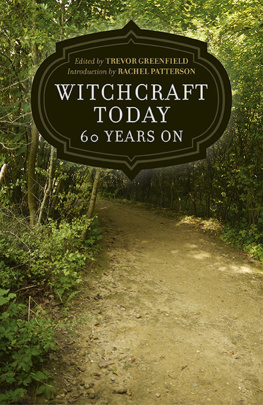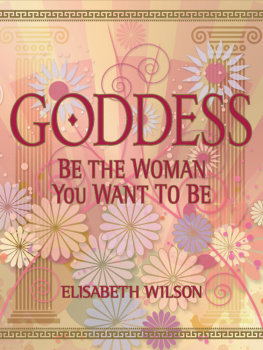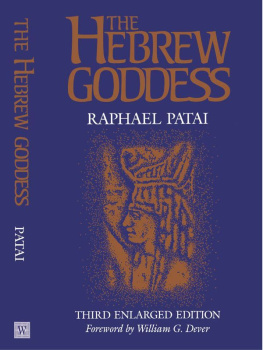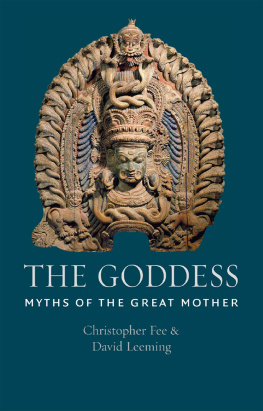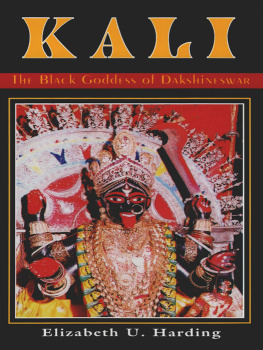Trevor Greenfield - Naming the Goddess
Here you can read online Trevor Greenfield - Naming the Goddess full text of the book (entire story) in english for free. Download pdf and epub, get meaning, cover and reviews about this ebook. year: 2014, publisher: John Hunt Publishing, genre: Religion. Description of the work, (preface) as well as reviews are available. Best literature library LitArk.com created for fans of good reading and offers a wide selection of genres:
Romance novel
Science fiction
Adventure
Detective
Science
History
Home and family
Prose
Art
Politics
Computer
Non-fiction
Religion
Business
Children
Humor
Choose a favorite category and find really read worthwhile books. Enjoy immersion in the world of imagination, feel the emotions of the characters or learn something new for yourself, make an fascinating discovery.

- Book:Naming the Goddess
- Author:
- Publisher:John Hunt Publishing
- Genre:
- Year:2014
- Rating:4 / 5
- Favourites:Add to favourites
- Your mark:
- 80
- 1
- 2
- 3
- 4
- 5
Naming the Goddess: summary, description and annotation
We offer to read an annotation, description, summary or preface (depends on what the author of the book "Naming the Goddess" wrote himself). If you haven't found the necessary information about the book — write in the comments, we will try to find it.
Naming the Goddess — read online for free the complete book (whole text) full work
Below is the text of the book, divided by pages. System saving the place of the last page read, allows you to conveniently read the book "Naming the Goddess" online for free, without having to search again every time where you left off. Put a bookmark, and you can go to the page where you finished reading at any time.
Font size:
Interval:
Bookmark:
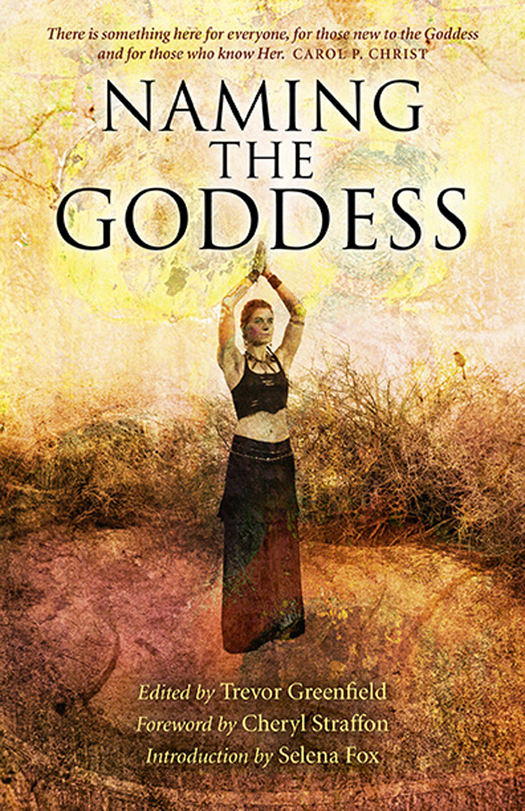
WHAT PEOPLE ARE SAYING ABOUT
NAMING THE GODDESS
Naming the Goddess is a delightful read, answering questions and raising them, from a variety of perspectives, all grounded in personal experiences, often in years of seeking and finding the Goddess and Goddesses. There is something here for everyone, for those new to the Goddess and for those who know Her. I especially liked the reflections with which the book begins and appreciated the catalogue of Goddesses written by different people who understood the different Goddesses from their different standpoints.
Carol P. Christ, author of Rebirth of the Goddess, leader of Goddess Pilgrimage to Crete
Naming the Goddess is an amazing combination of the practitioners voice alongside the scholar, while addressing many of the important issues within Goddess Spirituality today. Within the pages of Naming the Goddess, Goddess Spirituality comes of age as it manages to strike a healthy balance between honoring the old beliefs yet reclaims the Divine Feminine in a more contemporary context for modernity. Great new voices carrying the torch for understanding and embracing The Great She for the future of our world!
Karen Tate, author of Walking an Ancient Path, Goddess Calling and Voices of the Sacred Feminine
This collection of writings is so rich and diverse, it could be of interest to anyone seeking the essence of the divine, whether polytheist, pantheist, monist, or otherwise, and whether their principle understanding of deity is gendered female or otherwise. Indeed perhaps it is in that very diversity, in the cracks of divergence, that the sacred is most potent, accessible and enthralling.
Emma Restall Orr, author of Kissing the Hag, Living With Honour and The Wakeful World
This fabulous overview of modern Goddess spirituality includes not only 13 thought-provoking thealogical essays, but also a gazetteer of goddesses from across the globe. Written by over 85 professional writers and spiritual practitioners, this meaty and vibrant guide to the Goddess is one youll want to add to your library ASAP.
Jeri Studebaker, author of Switching to Goddess
A must read for those old and new to Goddess. With new and known authors, this book gives an interesting and varied view on Goddess and feminine spirituality, and how that effects both spiritual paths and society. Brilliant!
Annabell Alexander, Founder of the Goddess Foundation

First published by Moon Books, 2014
Moon Books is an imprint of John Hunt Publishing Ltd., Laurel House, Station Approach,
Alresford, Hants, SO24 9JH, UK
www.johnhuntpublishing.com
www.moon-books.net
For distributor details and how to order please visit the Ordering section on our website.
Text copyright: Trevor Greenfield 2013
ISBN: 978 1 78279 476 9
All rights reserved. Except for brief quotations in critical articles or reviews, no part of this book may be reproduced in any manner without prior written permission from the publishers.
The rights of Trevor Greenfield as editor have been asserted in accordance with the Copyright,
Designs and Patents Act 1988.
A CIP catalogue record for this book is available from the British Library.
Design: Stuart Davies
www.stuartdaviesart.com
Printed and bound by CPI Group (UK) Ltd, Croydon, CR0 4YY
We operate a distinctive and ethical publishing philosophy in all areas of our business, from our global network of authors to production and worldwide distribution.
CONTENTS
Preface
When Moon Books began, at the beginning of 2012, we determined from the outset that as well as publishing books from authors, both well-known and new, we would endeavour to develop a community of readers and writers, bloggers, poets and critics. Naming the Goddess is one of the results of that commitment. In this book over seventy five writers come together to honour the Goddess and produce a book that above all is a celebration of Her and their creativity. The book is in two parts; the first is a series of critical essays reflecting upon contemporary issues, the second is a spiritual gazetteer featuring Goddesses from across the globe. It was a pleasure to be involved in the books creation. I hope you enjoy reading it.
Trevor Greenfield
Foreword
Nearly 40 years ago, I was setting off for a holiday on the Greek island of Lesbos. Just as I was leaving, a friend thrust a book into my hand and said: Ive just received this from America I think you will probably enjoy it. I put it into my suitcase, and when we arrived in Lesbos it was raining, and continued to rain solidly for three days. So I sat down to read what looked like quite an academic book, and found myself absolutely enthralled. It was as if all the things that I had believed in all my life without knowing it had validation and precedence. The book was The Goddesses and Gods of Old Europe by Marija Gimbutas (1974), a Lithuanian-American archaeologist and anthropologist who had excavated at a number of sites in Europe and had found a wealth of Goddess figurines, images and iconography at a time when such finds were deemed to be of no particular significance. From this Gimbutas developed a theory that there were many cultures throughout Europe from the Neolithic, Chalcolithic and Bronze Ages that were Goddess-celebrating and matrifocal in their beliefs and practices. This was revolutionary stuff, and if ever a book changed my life that one did! Later Gimbutas was to develop a theory about the universal language of the Goddess encoded in the iconography and visual symbolism from these societies, which she published as The Language of the Goddess (1989) and The Civilisation of the Goddess (1991); two magnificently illustrated and well-argued books.
Marija Gimbutas encouraged me to research my own native Cornwall (UK) and Britain and Ireland, looking at prehistory through the same Goddess lens that she had used, and the result was a number of books that I wrote and have been published over the years. Since those early days, there has been an explosion of research and writings on the Goddess, from many approaches and viewpoints. Just the ones that my partner and I possess fill two complete full-size bookcases along a complete wall of one of our rooms! Of course, there has been the inevitable backlash to her ideas and assertions (the notion of Goddess seems to touch a raw nerve in many people), as well as a more moderate and reasoned modification of some of her ideas, but the seed that she planted 40 years ago has now grown into a healthy, full-blossomed tree, with many branches bearing rich fruit. This book is the latest one of these, and, to my mind, one of the most important to have come out in recent years.
The book falls into two parts, both distinctive in their own way. The first part, entitled Writing the Goddess, consists of a number of essays, looking at how Goddess is experienced and celebrated in society today. The writers of these essays raise pertinent and relevant questions for those who have just discovered Goddess as well as those who are seasoned and experienced practitioners of Goddess research and belief. They talk about the specialness, the uniqueness, of Goddess belief, and of how the beliefs of ancient societies can be of relevance to us today. They ask questions about what Goddess means, and how that is different from God or spirit, and they challenge both our ideology and our concept of what Goddess means. They stimulate our personal arguments and ideas of what is Goddess, and engage us in a process to re-think, re-establish or re-affirm our personal beliefs. They cover a wide range of topics, including gender, nature, politics, energy, meaning, belief and practice, and ask fundamental and important questions, such as what does belief in a Goddess, or many Goddesses, mean to me? and how can this belief best manifest in my life and in my world?. These are significant and meaningful essays, and it seems to me that they should be required reading for anyone with a Goddess-focused spiritual belief or interest today.
Next pageFont size:
Interval:
Bookmark:
Similar books «Naming the Goddess»
Look at similar books to Naming the Goddess. We have selected literature similar in name and meaning in the hope of providing readers with more options to find new, interesting, not yet read works.
Discussion, reviews of the book Naming the Goddess and just readers' own opinions. Leave your comments, write what you think about the work, its meaning or the main characters. Specify what exactly you liked and what you didn't like, and why you think so.

